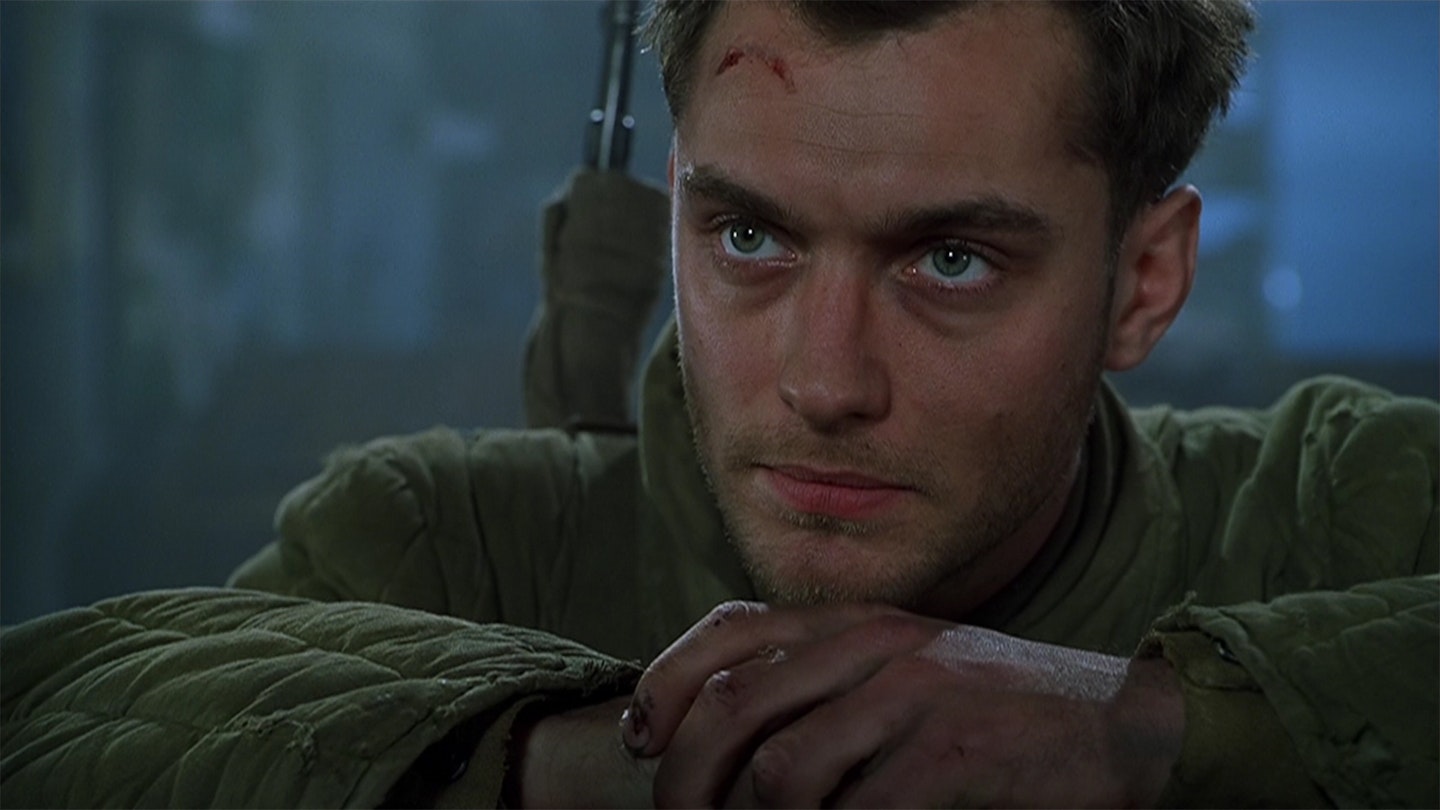Reputedly the most expensive Euro project ever produced, it's easy to see where the money went on Jean-Jacques Annaud's thoroughly entertaining World War II drama. In tackling a real-life chapter from the Russian war, Annaud certainly doesn't skimp on the breathtaking spectacle.
Early scenes of the Russian army on boats being bombarded by aircraft - footsoldiers scrabbling over the sides to safety are shot by their officers for deserting - and the subsequent scramble across Stalingrad Square are writ large and spectacular, the mêlée captured in muted, harrowing tones.
Surprisingly believable as a man of action, Law looks every inch the haunted sniper. His scenes with Fiennes capture the warm friendship between the two, but both actors struggle to find depth in characters that lack sides and shades. The story throws up interesting brain food about the nature of propaganda and the paradoxes of Zaitesev's (Law) popularity – he is a lone hero in a land that believes in the equality of people – yet fails to follow these themes up.
Moreover, the three-way love story between Zaitsev, Danilov (Fiennes) and literate soldier Tania (an adequate Weisz) fails to convince. While the single love-making scene gets a believable scene of grabbed intimacy, the ménage-à-trois often lapses into a movie-movie feel that is at odds with the realistic tone of the combat footage. Similarly, the script lacks the political intelligence (an overly earnest voice over intones, "Europe lies crushed beneath the Nazi jackboot") and the sense of complexity that marks out the best of epic cinema. Compounding the simplistic tone of the piece, Bob Hoskins lends an overwrought presence as Khrushchev.
Yet where Enemy At The Gates really impresses is in its central tussle between natural sharpshooter Zaitsev and clinical assassin Konig (Harris). Annaud gets fascinating mileage in the duel of wits between the two men – to ascertain Zaitsev's position, Konig sends out a Russian captive dressed as a Nazi, hoping Zaitsev will shoot – filled with nifty sniper technology.
The duel reaches its high point in a gripping, expertly crafted set-piece as, stranded without his gun, Zaitsev takes refuge behind a cooker in a derelict factory and Konig is forced to flush the Russian out. The quality turn of the movie, Ed Harris is great as a reserved, calculating marksman, but always hints at a buried humanity (as in his scenes with a Russian moppet), never lapsing into the typical Nazi monster.
